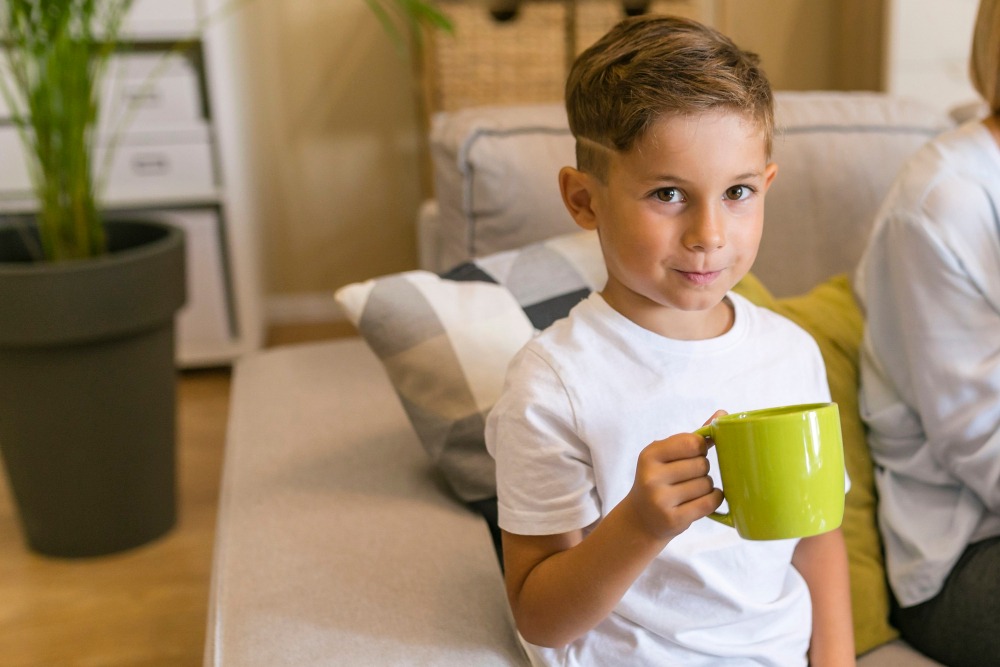In a world where energy drinks, sodas, and coffee are readily available, it’s important to examine the relationship between kids and caffeine. Caffeine, a natural stimulant, is not only found in beverages like coffee and tea but also in chocolates, certain snacks, and many energy drinks. While adults often consume caffeine to stay alert and active, its impact on children can be significantly more severe.
Thank you for reading this post, don't forget to subscribe!
Effects of Caffeine on Kids’ Sleep Quality
Sleep is essential for children’s growth and development. During sleep, their bodies release growth hormones, process daily information, and repair themselves. However, caffeine can have detrimental effects on kids’ sleep quality in several ways:
- Delayed Sleep Onset: Caffeine interferes with the body’s ability to fall asleep at the desired time, often leading to delayed sleep onset. This means children go to bed later than they should, reducing their overall sleep duration.
- Reduced Sleep Duration: Children need around 9-12 hours of sleep per night. Caffeine consumption can reduce this critical sleep duration, depriving them of the rest they need for optimal health.
- Disrupted Sleep Cycles: Even if children manage to fall asleep after consuming caffeine, their sleep cycles can be disturbed. Caffeine affects the quality of sleep, making it less restorative and more fragmented.
- Increased Night Waking: Children who consume caffeine are more prone to waking up during the night. These frequent interruptions prevent the deep, uninterrupted sleep that is necessary for their growth and cognitive development.
Why Kids Should Avoid Caffeine for Better Sleep
Understanding the reasons why kids should avoid caffeine for better sleep involves recognizing the broader implications of caffeine on their overall health and development:
Impaired Growth: Growth hormones are primarily released during deep sleep. Lack of adequate sleep can impair physical growth and development.
Behavioral Problems: Insufficient sleep can lead to behavioral issues such as irritability, hyperactivity, and difficulties in emotional regulation. This can affect a child’s social interactions and mental health.
Academic Challenges: Sleep-deprived children often experience problems with attention, memory, and problem-solving skills. These cognitive impairments can lead to academic underperformance and difficulties in school.
Health Issues: Regular caffeine consumption can cause dependency, leading to withdrawal symptoms like headaches and irritability. It can also cause stomach problems, increased heart rate, and higher blood pressure in children.
Encouraging Better Habits
To ensure that children avoid caffeine and get the sleep they need, parents and caregivers can adopt several strategies:
Promote Healthy Beverages: Encourage children to drink water and milk instead of caffeinated drinks. These alternatives are not only healthier but also support their overall hydration and nutritional needs.
Educate About Caffeine Sources: Teach children to recognize hidden sources of caffeine, such as certain chocolates, snacks, and sodas. Awareness can help them make better dietary choices.
Establish Cut-off Times: If older children consume caffeine, ensure it is well before bedtime. Setting a cut-off time can help minimize the impact of caffeine on their sleep.
Model Good Behavior: Children often emulate their parents. By prioritizing good sleep hygiene and moderating your caffeine intake, you set a positive example for your children to follow.
Also read: How Caffeine Affects Your Sleep Patterns
By understanding the relationship between kids and caffeine and recognizing the detrimental effects of caffeine on kids’ sleep quality, we can take proactive steps to promote healthier habits. Ensuring that children avoid caffeine is a straightforward yet powerful way to enhance their sleep and overall well-being. Prioritizing sleep and avoiding caffeine can help children grow, learn, and thrive, giving them the best foundation for a healthy and successful future.



